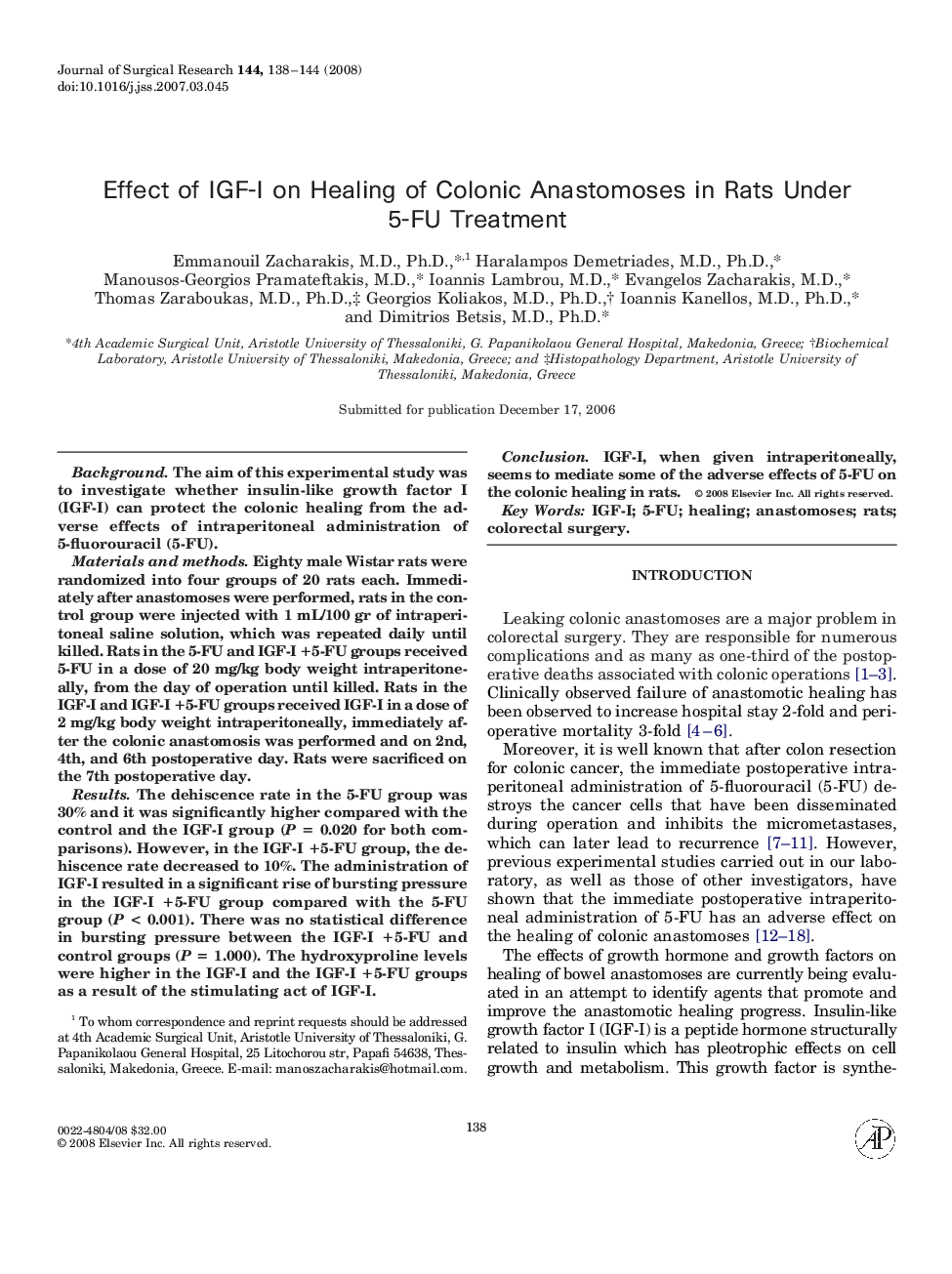| Article ID | Journal | Published Year | Pages | File Type |
|---|---|---|---|---|
| 4304249 | Journal of Surgical Research | 2008 | 7 Pages |
BackgroundThe aim of this experimental study was to investigate whether insulin-like growth factor I (IGF-I) can protect the colonic healing from the adverse effects of intraperitoneal administration of 5-fluorouracil (5-FU).Materials and methodsEighty male Wistar rats were randomized into four groups of 20 rats each. Immediately after anastomoses were performed, rats in the control group were injected with 1 mL/100 gr of intraperitoneal saline solution, which was repeated daily until killed. Rats in the 5-FU and IGF-I +5-FU groups received 5-FU in a dose of 20 mg/kg body weight intraperitoneally, from the day of operation until killed. Rats in the IGF-I and IGF-I +5-FU groups received IGF-I in a dose of 2 mg/kg body weight intraperitoneally, immediately after the colonic anastomosis was performed and on 2nd, 4th, and 6th postoperative day. Rats were sacrificed on the 7th postoperative day.ResultsThe dehiscence rate in the 5-FU group was 30% and it was significantly higher compared with the control and the IGF-I group (P = 0.020 for both comparisons). However, in the IGF-I +5-FU group, the dehiscence rate decreased to 10%. The administration of IGF-I resulted in a significant rise of bursting pressure in the IGF-I +5-FU group compared with the 5-FU group (P < 0.001). There was no statistical difference in bursting pressure between the IGF-I +5-FU and control groups (P = 1.000). The hydroxyproline levels were higher in the IGF-I and the IGF-I +5-FU groups as a result of the stimulating act of IGF-I.ConclusionIGF-I, when given intraperitoneally, seems to mediate some of the adverse effects of 5-FU on the colonic healing in rats.
